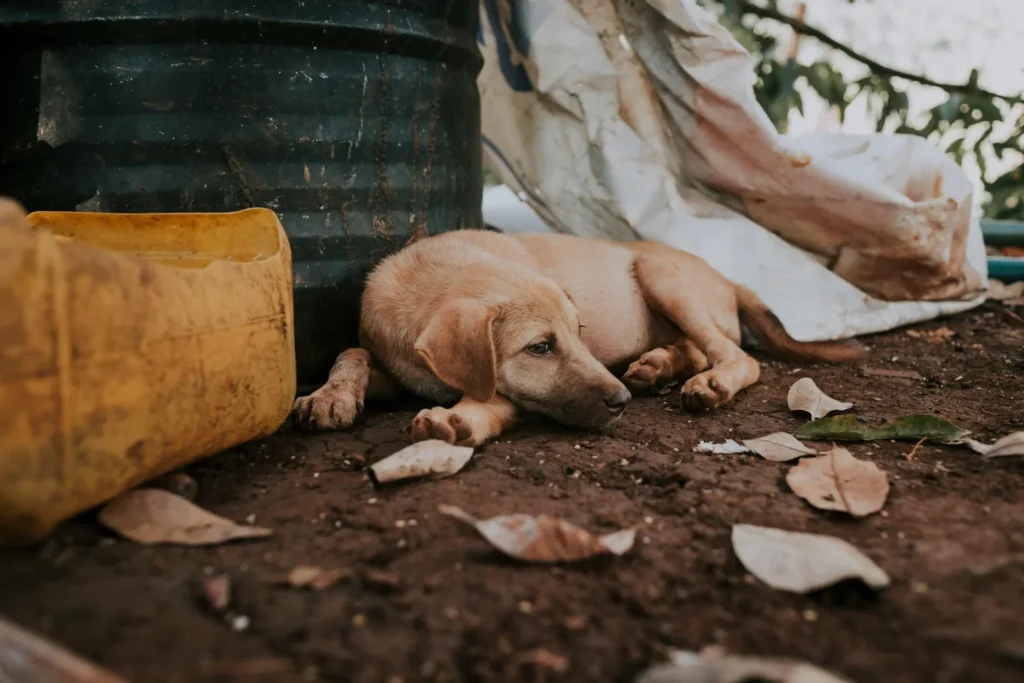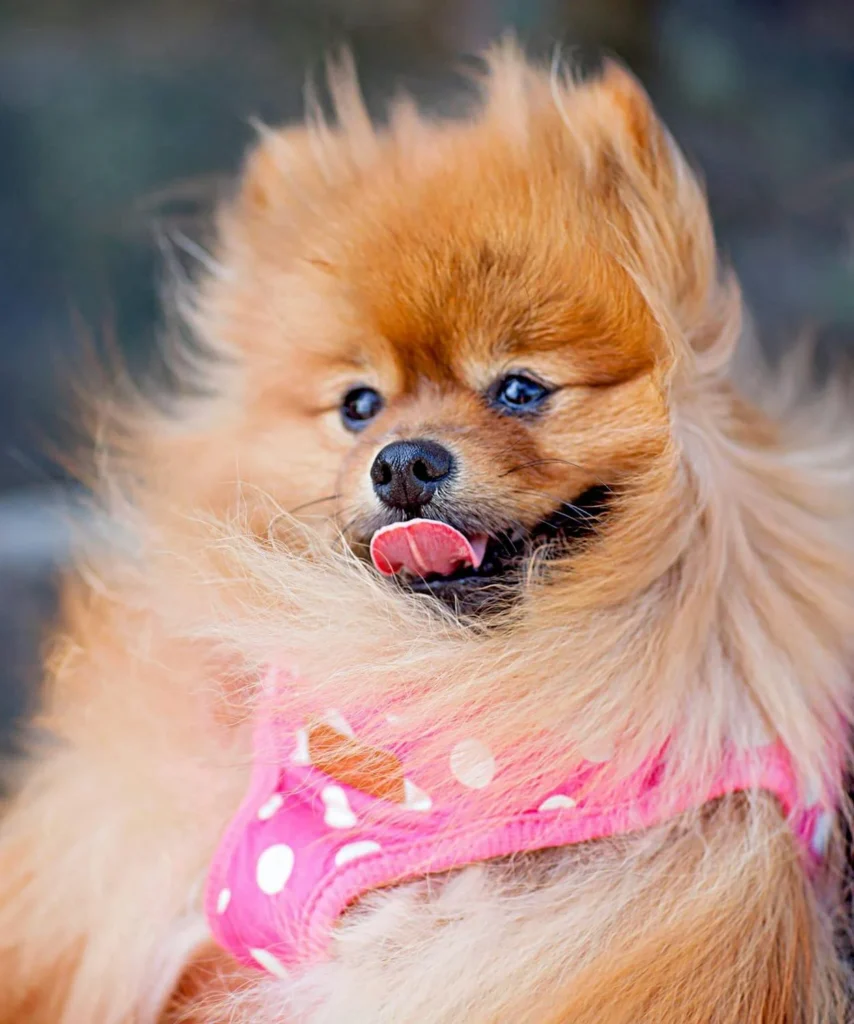Introduction: A Stinky Situation
Ah, Dachshunds – those adorable sausage-shaped dogs with personalities bigger than their bodies. But there’s a not-so-cute habit that some Dachshund owners face: coprophagia, or the consumption of feces. 🤢 If you’ve caught your wiener dog snacking on something unsavory, you’re not alone. Let’s dive into this smelly subject and uncover why Dachshunds might engage in this behavior, its consequences, and most importantly, how to put a stop to it.
Understanding Coprophagia: The Basics 🔬
What is Coprophagia?
Coprophagia is the scientific term for eating feces. It comes from the Greek words “copros” (feces) and “phagein” (to eat). While it might turn our stomachs, it’s actually a behavior seen in various animals, including some of our beloved pets.
Is it Normal? 🤔
While disgusting to us, some degree of coprophagia can be normal in the animal kingdom. Mother dogs, for instance, often eat their puppies’ feces to keep the den clean. However, when adult dogs persistently engage in this behavior, it’s typically considered abnormal and potentially problematic.
Why Do Dachshunds Eat Poop? The Causes 🕵️♀️
There are several reasons why your Dachshund might be indulging in this unsavory habit:

- Nutritional Deficiencies 🥩
- Lack of essential nutrients in diet
- Enzyme deficiencies
- Medical Issues 🏥
- Parasites
- Conditions affecting nutrient absorption
- Diseases increasing appetite (e.g., diabetes, thyroid issues)
- Behavioral Reasons 🧠
- Anxiety or stress
- Attention-seeking behavior
- Boredom
- Learned behavior from puppyhood
- Environmental Factors 🏡
- Overcrowded living conditions
- Lack of proper house training
- Instinctive Behavior 🐺
- Cleaning instincts (especially in mothers with puppies)
- Scavenging instincts from wild ancestors
Dachshunds vs. Other Breeds: A Stinky Comparison 📊
While any dog can develop coprophagia, some breeds seem more prone to it. Let’s see how Dachshunds compare:
| Breed | Likelihood of Coprophagia | Common Reasons |
|---|---|---|
| Dachshund | High | Nutritional deficiencies, boredom |
| Labrador Retriever | Moderate | Scavenging instinct, nutritional issues |
| Poodle | Low | Anxiety, attention-seeking |
| German Shepherd | Moderate | Nutritional deficiencies, anxiety |
| Chihuahua | High | Attention-seeking, anxiety |
Note: These are general trends and individual dogs may vary.
The Consequences: Why It’s a Problem 😷
Coprophagia isn’t just gross – it can have serious health implications:
- Parasites 🪱
- Roundworms
- Hookworms
- Giardia
- Bacterial Infections 🦠
- Salmonella
- E. coli
- Viral Infections 🦠
- Parvovirus
- Digestive Issues 🤢
- Vomiting
- Diarrhea
- Dental Problems 😬
- Bad breath
- Tooth decay
- Behavioral Issues 😠
- Reinforcement of unwanted behavior
The Pros and Cons of Coprophagia 🤷♂️
Yes, believe it or not, there are some “pros” to this behavior in nature. Let’s break it down:
Pros (in wild animals)
- Keeps den areas clean 🧹
- Provides some nutrients 🥗
- Prevents predators from tracking via scent 🐾
Cons (in domestic dogs)
- Health risks 🏥
- Unpleasant for owners 🤮
- Can lead to social isolation (who wants a poop-eating dog at the park?) 🏞️
Home Remedies: DIY Solutions to Try 🏠
Before reaching for commercial products, consider these home remedies:
- Pineapple Juice 🍍
- Add a little to food; it makes feces taste bad to dogs
- Meat Tenderizer 🥩
- Sprinkle on food; contains enzymes that make feces less appetizing
- Pumpkin 🎃
- Add to food; can improve digestion and make stools less appealing
- Apple Cider Vinegar 🍎
- Add to water; may improve digestion and deter poop-eating
- Coconut Oil 🥥
- Mix into food; can improve overall health and potentially reduce coprophagia
Remember, always consult with your vet before making significant changes to your dog’s diet.
The Ultimate Solution: A Multi-Faceted Approach 🏆
Stopping coprophagia often requires a combination of strategies:
- Veterinary Check-up 👨⚕️
- Rule out medical causes
- Address any nutritional deficiencies
- Diet Improvement 🍽️
- High-quality, balanced dog food
- Possible supplements (under vet guidance)
- Environmental Management 🧹
- Immediate poop clean-up
- Restrict access to litter boxes or areas with animal feces
- Training 🎓
- Teach “leave it” command
- Positive reinforcement for ignoring feces
- Exercise and Mental Stimulation 🏃♂️🧠
- Regular walks and playtime
- Puzzle toys and games
- Deterrent Products 🛑
- Commercial anti-coprophagia supplements
- Bitter sprays for feces
Dachshund-Specific Considerations 🌭
Dachshunds, with their unique personalities and physiques, may require some special considerations:
- Back Health 🦴
- Avoid methods that require bending or straining
- Consider raised food and water bowls to aid digestion
- Stubbornness 😤
- Be patient and consistent in training
- Use high-value treats for positive reinforcement
- Size 🐾
- Adjust serving sizes of any supplements or additives accordingly
- Energy Levels ⚡
- Ensure adequate exercise to prevent boredom-induced coprophagia
The Role of Diet in Preventing Coprophagia 🍖
A proper diet is crucial in preventing and addressing coprophagia. Here’s what to consider:
- High-Quality Protein 🥩
- Easily digestible sources like chicken, turkey, or fish
- Balanced Nutrients 🥗
- Appropriate levels of vitamins and minerals
- Fiber Content 🌾
- Aids in digestion and produces less appealing stools
- Probiotics 🦠
- Support gut health and digestion
- Avoid Fillers 🚫
- Steer clear of foods with excessive corn, wheat, or soy
Training Techniques to Stop Coprophagia 🎓
Consistent training can help curb this habit:
- “Leave It” Command 🗣️
- Teach your Dachshund to ignore feces on command
- Positive Reinforcement 🦴
- Reward your dog for ignoring feces during walks
- Interrupt and Redirect 🔀
- Distract your dog if you catch them in the act
- Immediately offer a toy or treat as an alternative
- Leash Training 🦮
- Keep your dog close during walks to prevent access to feces
- Consistency 📅
- Ensure all family members follow the same rules and commands
Environmental Management: Poop-Proofing Your Space 🏡
Creating an environment that discourages coprophagia is key:
- Regular Clean-up 🧹
- Remove feces from your yard immediately
- Supervised Outdoor Time 👀
- Keep an eye on your Dachshund when outside
- Restrict Access 🚫
- Use baby gates to block access to cat litter boxes
- Deterrent Sprays 🌿
- Apply safe, bitter-tasting sprays to areas where your dog typically finds feces
- Proper Waste Disposal 🗑️
- Ensure feces are disposed of in a secure, inaccessible trash can
The Psychology Behind Poop Eating 🧠
Understanding the psychology can help address the root cause:
- Attention-Seeking 👋
- Some dogs learn that eating poop gets a big reaction from their owners
- Anxiety 😰
- Stress can lead to unusual behaviors, including coprophagia
- Boredom 😴
- Lack of mental and physical stimulation can lead to this behavior
- Learned Behavior 📚
- Puppies may learn this from their mother or other dogs
- Scavenging Instinct 🐺
- A remnant of their wild ancestors’ survival tactics
Medical Treatments for Coprophagia 💊
In some cases, veterinary intervention may be necessary:
- Enzyme Supplements 🧬
- To aid in digestion and nutrient absorption
- Vitamin B Supplementation 💊
- Addresses potential deficiencies
- Parasite Treatment 🪱
- Eliminates internal parasites that may contribute to the behavior
- Medication for Underlying Conditions 💉
- Treats diseases that may cause increased appetite or malabsorption
- Behavioral Medication 🧠
- In severe cases, anti-anxiety medications may be prescribed
Always consult with your veterinarian before starting any medical treatments.
The Impact on Human-Dog Relationships 👫🐕
Coprophagia can strain the bond between a Dachshund and their owner:
- Disgust Factor 🤢
- Owners may be less inclined to cuddle or allow face licking
- Trust Issues 🤔
- Owners may be wary of leaving the dog unsupervised
- Social Limitations 🏞️
- Embarrassment may lead to fewer outings or playdates
- Frustration 😤
- Persistent behavior can lead to owner frustration and stress
- Increased Care Burden 🧼
- More frequent bathing and dental care may be required
Myths and Misconceptions About Coprophagia 🙅♂️
Let’s debunk some common myths:
- Myth: Dogs eat poop because they’re hungry
Fact: While nutrition can play a role, many well-fed dogs engage in coprophagia - Myth: Only puppies eat poop
Fact: Dogs of any age can develop this habit - Myth: Coprophagia means your dog has worms
Fact: While parasites can be a cause, many other factors can contribute - Myth: Punishing your dog will stop the behavior
Fact: Punishment can increase stress and potentially worsen the problem - Myth: Dogs who eat poop are unintelligent
Fact: Intelligence has no correlation with coprophagia
Conclusion: A Cleaner, Healthier Future for Your Dachshund 🌈
Dealing with a poop-eating Dachshund can be frustrating, but remember – it’s a solvable problem. By understanding the causes, implementing proper management strategies, and working closely with your veterinarian, you can help your furry friend overcome this unpleasant habit. Stay patient, consistent, and positive. With time and effort, your Dachshund can leave this behavior behind, leading to a happier, healthier relationship between you and your pet.
FAQs About Dachshunds and Coprophagia 🤔
- Q: Is it dangerous for my Dachshund to eat poop?
A: Yes, it can be. Eating feces can expose your dog to parasites, bacteria, and viruses. - Q: Will my Dachshund grow out of eating poop?
A: Not necessarily. While some puppies may outgrow the behavior, it can persist in adult dogs if not addressed. - Q: Can coprophagia be a sign of a serious health problem?
A: Yes, it can sometimes indicate nutritional deficiencies, parasites, or other health issues. Always consult with your vet. - Q: How quickly can I expect to see results when trying to stop this behavior?
A: It varies, but with consistent management and training, you might see improvement in a few weeks to a few months. - Q: Are certain types of poop more attractive to dogs?
A: Yes, many dogs seem to prefer cat feces or the feces of herbivores like rabbits or horses. - Q: Can feeding my Dachshund pineapple really stop them from eating poop?
A: While pineapple works for some dogs, it’s not a guaranteed solution. It’s just one of many potential strategies. - Q: Is coprophagia more common in Dachshunds than other breeds?
A: While any breed can develop this habit, some studies suggest it may be more common in certain breeds, including Dachshunds. - Q: Can coprophagia be contagious among dogs?
A: While not “contagious” in the medical sense, dogs can learn this behavior from other dogs. - Q: Will spaying or neutering my Dachshund stop this behavior?
A: While it may help with some behavioral issues, spaying or neutering alone is unlikely to stop coprophagia. - Q: Can stress or anxiety cause my Dachshund to eat poop?
A: Yes, stress and anxiety can contribute to many unusual behaviors in dogs, including coprophagia.
Remember, while these FAQs provide general information, always consult with your veterinarian for advice tailored to your specific Dachshund’s needs.



